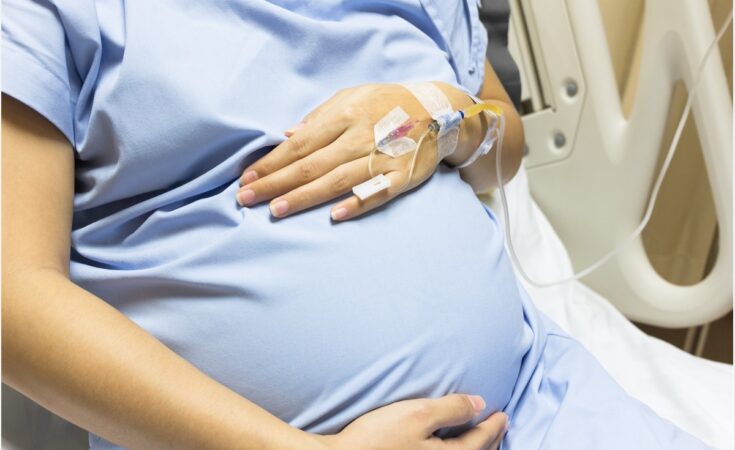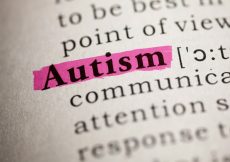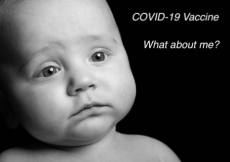In a recent JAMA study, researchers report on the potential for serious maternal illness or death during or following a pregnancy complicated by the coronavirus disease 2019 (COVID-19), which is caused by severe acute respiratory syndrome coronavirus 2 (SARS-CoV-2).
Herein, the researchers examined the records of over 14,000 patients in order to identify outcomes like hypertension, postpartum bleeding, or other maternal infections that were more frequently associated with COVID-19 during pregnancy.
Study: Association of SARS-CoV-2 Infection with Serious Maternal Morbidity and Mortality From Obstetric Complications. Image Credit: milkumistock / Shutterstock.com
Introduction
Earlier studies have indicated that pregnancy outcomes deteriorate in the presence of SARS-CoV-2 infection. In fact, pregnant women who tested positive for COVID-19 were more likely to be admitted to the intensive care unit (ICU), require mechanical ventilation, and die as compared to non-pregnant adults with COVID-19 or pregnant women without COVID-19. These deaths were attributed to virus-related complications; however, the question as to obstetric complications arising from the SARS-CoV-2 infection has not yet been answered.
The leading causes of obstetric complications in the United States include hypertensive disorders of pregnancy, postpartum hemorrhage, and other infections, which occur in up to one in five pregnancies. Each of these risk factors requires prompt identification and treatment, which could be delayed by current COVID-19 protocols for pregnant individuals who test positive for COVID-19. Moreover, the infection itself may cause deranged coagulation and hypertension that also increases the risk of obstetric complications.
Study findings
In the current retrospective study, approximately 2,300 patients with COVID-19 and 11,800 who had no history of a positive test were studied from 17 different American hospitals. Over 80% of patients tested positive in the third trimester, with 18% testing positive for COVID-19 in their second trimester. These patients were less likely to be first-time mothers and were more often younger, heavier, Hispanic, uninsured, or on public insurance.
Patient records were examined for the occurrence of serious illness related to hypertensive disorders of pregnancy, postpartum hemorrhage, other infections, or death. Some of the hypertensive disorders included eclampsia, hemolysis, elevated liver enzymes, and low platelets (HELLP) syndrome, pulmonary edema, severe hypertension, liver rupture, liver enzymes twice the upper limit of normal, low platelets, abruption, and high creatinine levels above 1.2 mg/dL.
With postpartum hemorrhage, patients who received four or more units of packed red blood cells, required surgery or radiological procedures to arrest the bleeding, or had bleeding-related complications were considered to have serious morbidity. Relative to other infections, the presence of sepsis, bacteremia, endometritis with intravenous antibiotic therapy for more than 24 hours, deep infection at the site of incision, or pelvic abscess were all considered features of serious illness.
COVID-19-positive patients experienced serious illness or death in more than 13% of cases as compared to 9% in those without a positive test, which comes to increased risk by 40% in pregnant COVID-19 patients. Five deaths were reported, all of which occurred in the COVID-19-positive group; however, there was not an increased risk of Cesarean birth in this group.
The scientists found that testing positive for COVID-19 was also associated with the need for mechanical ventilation, vasopressors, cardiomyopathy, and venous thromboembolism. Four patients required extracorporeal membrane oxygenation (ECMO), all of whom were positive for COVID-19.
Among those with moderate to severe COVID-19, who made up a quarter of the test-positive cohort, the relative risk for the serious maternal morbidity and mortality composite outcome was doubled, while the risk was increased 13-fold for severe morbidity or mortality. ICU admissions increased 17-fold as compared to the COVID1-19-negative cohort.
Mild or asymptomatic COVID-19 was not a risk factor for the primary composite outcome. However, infections at the surgical site were twice as frequent, while the occurrence of hypertensive disorders of pregnancy was increased by 28%.
While preterm birth was also increased in the test-positive cohort, at about 18% as compared to 4% in COVID-19-negative mothers, most were medically indicated, rather than due to spontaneous preterm labor. No other neonatal outcome was associated with the presence of SARS-CoV-2 infection.
Again, in the moderate to severe COVID-19 cohort, preterm births at less than 32 weeks and less than 37 weeks gestation were increased, as was neonatal ICU admission.
Implications
Notably, most of the data reported in the current study were acquired before the clinically more severe SARS-CoV-2 Delta variant emerged, with Omicron data still missing. Most infections in this study occurred in the third trimester; thus, the complications occurred in the presence of SARS-CoV-2 during the peripartum period. Pregnancy losses before the 20th week were also not fully documented.
“Among pregnant and postpartum individuals, SARS-CoV-2 infection was associated with increased risk of a composite outcome of maternal mortality or serious morbidity from obstetric complications.”
The study findings add to current knowledge on the relationship between COVID-19 and potential pregnancy complications. Furthermore, these findings help determine whether SARS-CoV-2 adversely affects pregnant mothers.
Neonatal complications were also increased. In both cases, this was largely confined to mothers with moderate to severe COVID-19, with the risk in mild to asymptomatic infection being comparable to test-negative mothers.



.jpg)































